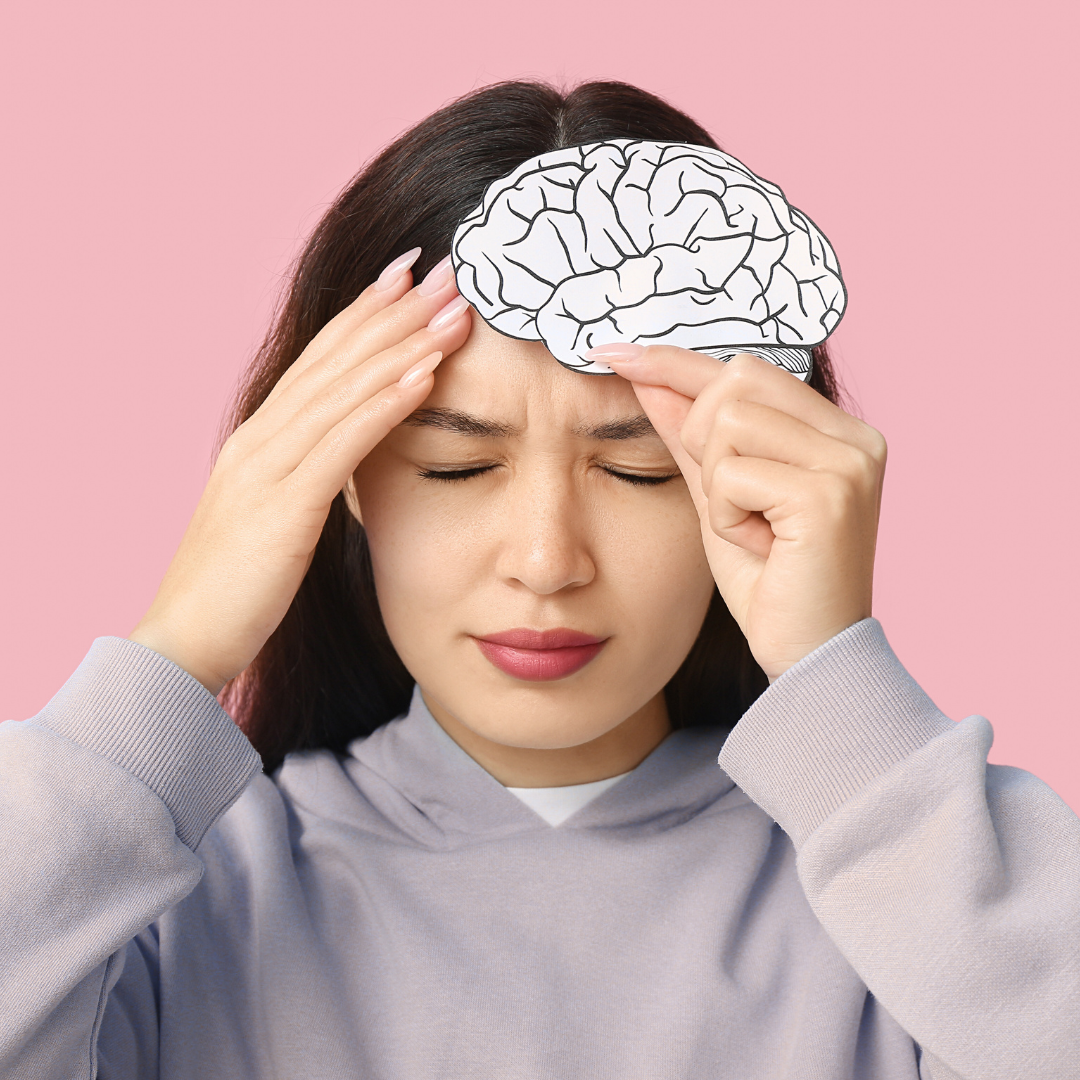Energy Crash After Coffee: Why It Happens & Gentle Fixes for All-Day Energy
The Real Reason You Crash After Coffee (And It’s Not Just Caffeine)
If you’ve ever felt a burst of energy from your morning coffee, only to hit a wall an hour or two later, you’re not imagining it. That frustrating “wired then tired” feeling is one I hear about often from women with chronic stress, fatigue, or nervous system sensitivity.
And it’s not because you’re weak or “can’t handle caffeine.” That energy crash after coffee is usually a clue from your body that deeper factors are at play, like blood sugar swings, nervous system overstimulation, or even mitochondrial stress. When these systems are running on empty, coffee pushes them harder than they can comfortably handle.
The good news? Once you understand the “why” behind your coffee crash, you can use gentle, root-cause strategies to keep your energy steady, without giving up coffee entirely.
Why an Energy Crash After Coffee Happens
Coffee affects more than your alertness. It influences blood sugar, stress hormones, and even the tiny power plants in your cells, your mitochondria. If any of these systems are imbalanced, coffee can create a short-lived high followed by a sharp drop.
That’s when coffee crash symptoms like shakiness, irritability, brain fog, and sudden fatigue kick in.
Blood Sugar Imbalances and the Coffee Crash
Caffeine stimulates your adrenal glands to release cortisol and adrenaline. These stress hormones temporarily raise blood sugar, which gives you that initial rush of energy.
But if your blood sugar regulation is already unstable, that spike is quickly followed by a sharp dip, similar to a coffee blood sugar crash after a sweet breakfast. The result? Fatigue, brain fog, mood swings, and sometimes intense hunger.
Having coffee on an empty stomach makes this more likely. Pairing your morning coffee with a balanced, protein-rich breakfast is one of the easiest ways to steady your energy curve.
Nervous System Overstimulation
Coffee activates your sympathetic nervous system, your “fight or flight” mode, even when you’re sitting still. For women with chronic stress or HPA axis dysregulation, this can feel like a burst of mental energy (“wired”) that quickly drains into exhaustion (“tired”).
If you often feel jittery, anxious, or drained after coffee, it may be a sign your caffeine and nervous system connection needs attention. Over time, repeated overstimulation can deplete resilience and worsen fatigue.
Mitochondrial Energy Production Challenges
Your mitochondria are responsible for making ATP, your body’s main energy currency. When they’re stressed from inflammation, oxidative damage, or nutrient depletion, they can’t meet high demands.
Caffeine speeds up energy use. If your mitochondria can’t keep up, you’ll feel an adrenal fatigue caffeine crash, a hard drop in energy once the initial stimulation fades. Supporting your mitochondria can help your body use caffeine without the crash.
Other Reasons Coffee Can Make You Tired
If you consistently crash after coffee, the problem isn’t always just caffeine. Several underlying imbalances can make you more sensitive to its effects and more likely to experience a wired then tired after coffee pattern.
1. Nutrient Deficiencies
Minerals like magnesium, and B vitamins (especially B1, B2, B3, and B12) are essential for mitochondrial function and energy production. Coffee is mildly diuretic, so it can increase mineral loss, and it may also raise your nutrient requirements. If you’re already low, coffee can make the deficit, and your coffee crash symptoms, more noticeable.
2. Adrenal Fatigue or HPA Axis Dysfunction
If your adrenal glands are overworked from chronic stress, they may respond to caffeine with a quick burst of energy, followed by a steep drop. This is a common cause of the exaggerated “wired then wiped out” cycle, sometimes called an adrenal fatigue caffeine crash.
3. Gut Dysbiosis or Poor Absorption
If your gut microbiome is imbalanced or your digestion is sluggish, your body may have trouble absorbing the nutrients needed for steady energy. This can worsen mitochondrial fatigue from caffeine and make you more prone to a post-coffee energy dip.
4. Sleep Debt
If you’re chronically underslept, coffee can mask fatigue temporarily but can’t replace the deep rest your body needs. Over time, using caffeine to push through can disrupt your circadian rhythm and compound the exhaustion.
Testing for Root Causes: The Organic Acids Test (OAT)
If you regularly experience an energy crash after coffee, or after meals, it’s worth digging deeper. One of the most comprehensive tools for this is the Organic Acids Test.
This simple urine test measures byproducts of your metabolism to reveal how your body is functioning at a cellular level. It can uncover:
Mitochondrial efficiency and ATP production
Vitamin and mineral needs (including magnesium and B vitamins)
Neurotransmitter balance (impacting focus, mood, and stress resilience)
Oxidative stress levels and detox pathway function
Signs of yeast or bacterial overgrowth in the gut
If you’ve wondered, can the Organic Acids Test help with coffee crash fatigue? — the answer is yes. It gives you a clear map of where your energy is breaking down so you can support it directly.
Gentle, Nervous-System-Friendly Solutions
Once you know the “why” behind your coffee crash, you can make changes that support your body rather than push it.
Stabilize Blood Sugar
Eat a balanced, protein-rich breakfast before your first cup of coffee.
Pair caffeine with fiber and healthy fats to slow glucose spikes.
Avoid coffee on an empty stomach to reduce the risk of a coffee blood sugar crash.
Support Mitochondria
Prioritize nutrient-dense foods like leafy greens, pasture-raised eggs, and wild-caught fish.
Consider magnesium, CoQ10, and B vitamins, ideally guided by testing.
Add gentle movement like walking or stretching to improve circulation without overtaxing your body.
Calm the Stress Response
Practice breathwork or grounding before or after coffee to prevent overstimulation.
Delay caffeine intake for 1–2 hours after waking to align with natural cortisol rhythms.
Take rest breaks to avoid nervous system overload.
When to Seek Functional Medicine Support
If you’ve tried adjusting your coffee timing, pairing it with food, or adding nutrient-rich meals, but still crash, you may need a personalized approach.
Persistent caffeine crash symptoms in women often point to:
Chronic blood sugar dysregulation
Mitochondrial dysfunction
Adrenal stress or HPA axis dysregulation
Gut imbalances limiting nutrient absorption
A functional medicine practitioner can help pinpoint the causes and build a custom plan. The Organic Acids Test is one of the most useful tools here because it evaluates your nutrient status, energy production, and nervous system balance all at once.
FAQ – Coffee Crash & Energy Dips
Q: Why do I feel tired after drinking coffee?
A: Blood sugar swings, nervous system overstimulation, or mitochondrial fatigue are the most common causes of an energy crash after coffee.
Q: How can I prevent an energy crash after coffee?
A: Eat a balanced breakfast first, avoid coffee on an empty stomach, support mitochondrial health, and regulate your stress response.
Q: Does coffee deplete magnesium?
A: Yes, coffee’s mild diuretic effect can increase magnesium loss, making deficiency more likely, especially in women with chronic stress.
Q: Is it bad to drink coffee on an empty stomach?
A: For sensitive bodies, yes. It can spike cortisol, cause a coffee on empty stomach crash, and irritate the gut.
You don’t have to give up coffee to feel steady, calm, and energized. By addressing the root causes of your coffee crash, you can enjoy it without the mid-morning slump.
If you’re ready to uncover exactly what’s draining your energy, join The Nervous System Healing Code or explore our 1:1 functional testing options, including the Organic Acids Test, for a plan that’s tailored to you.
Further Reading:









































